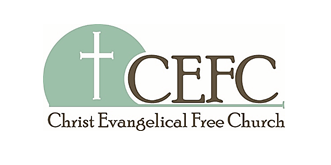EFCA Governance
EFCA has six provisional rules to assure congregational practice. The church’s Constitution and By-Laws need to incorporate the minimal rules to affirm congregational church government, such as:
1. Membership
The distinctive of a regenerate membership must be assured. (Acts 2:47)
Persons belonging must affirm a personal faith in Jesus Christ as their Savior and Lord. (Romans 10:9-10)
2. Government
The human authority of the church is vested in the collective will of its members under Christ and God’s Word. (Ephesians 2:19-22; 1 Cor. 12:12)
Delegation of authority must be done on the basis of the members’ abilities and spiritual gifts. (1 Cor. 12:4-6)
The elected leadership (Acts 14:23) shall be responsible for the general supervision of all the spiritual, physical, and financial affairs of the church. (2 Timothy 4:2)
They are subject to the final authority of the congregation. (1 Peter 5:3; Mark 10:43-45)
Authority to lead the church is given by the congregation as such:
- The election or affirmation of leadership is a trust given by congregational action.
- Leaders serve at the pleasure of the membership and are accountable to each other and the membership.
- Congregational meetings shall provide congregational endorsements and authorizations to the Board(s) of leaders and other officers and staff.
- Hence, leadership deliberations or decisions are subject to congregational support. (Not all matters are reviewed, only items the congregation may choose.)
3. Discipline
Matthew 18:15 instructs the Church in the procedure of discipline as follows:
First Step: Just between two of you | If they don’t respond, take one or two others as witnesses | If they don’t respond to others, tell it to the church | If they don’t respond to church elders, treat them as pagan. (Ephesians 4:1-3,32; Matt. 7:12; Phil. 2:3-4; II Cor. 2:5-11; 2 Thess. 3:14,15)
4. Board of Elders and Pastor
The congregation shall confer the elder led government of the church to an elected Board of Elders who shall function and lead the Body as a council of equals with plurality of leadership. (Acts 14:23; 1 Tim. 3:1-7, 5:17-18)
The Board of Elders shall be responsible for the general supervision of all the affairs of the Church. (Ephesians 4:1-16; Rom. 12:4-8. 1 Pet. 5:2-3)
It shall be the board’s duty to administer the business of the church in an orderly and efficient manner and provide spiritual leadership and direction to the congregation. (1 Cor. 14:40. Acts 20:28)
They shall consider and review all policies, make recommendations to the church, and carry out the instructions of the church. (2 Thes. 3:6-13 make model to follow)
The elders shall provide philosophical direction and goal-setting for all Christ EFC ministries through interaction, subsequent approval, and ownership by the membership.
The Elder with gift of pastor/teacher has as his chief task the equipping/preparing of the saints for the work of the ministry of the Church. (Ephesians 4:12-13)
“The chief speaker” (Acts 14:12) “First among equals” (1 Tim. 5:17) allows for functional gift-based diversity within the eldership team without creating an official superior office (autocracy) over fellow elders.
5. Budget
- The membership shall annually consider the vision/direction and faith planning expenditures, including itemized disbursements as recommended by the Boards of Elders and Deacons. (Luke 14:28-32)
- The congregation engages in buy-in and ownership of the why before the what. (Nehemiah 2:17,18)
- Adoption of the Faith Planning/Budget becomes congregational authorization of expenditures.
- The Elders are the gatekeepers of the adopted Faith Planning.
Nehemiah Principle
“Vision and purpose must be restated every twenty-six days to keep the church moving in the right direction. In other words, make sure you communicate your purpose at least monthly. It is amazing how quickly human beings – and churches – lose their sense of purpose.” Purpose Driven Church by Rick Warren using Nehemiah 4:6-15.
